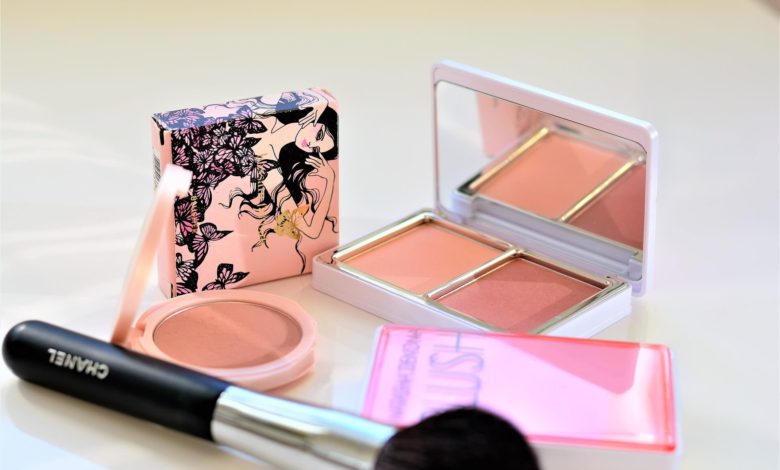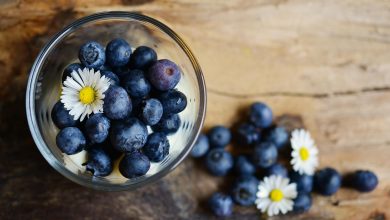How Do Beauty and Personal Care Products Affect Fertility?

One of the most harmful and common ingredients in today’s beauty and personal care products is perfluorinated chemicals (PFC). According to the National Institute of Environmental Health Sciences, PFC has a large group of compounds manufactured to make everyday products more durable. For example, PFCs can be used to prevent food from sticking to cookware, to make sofas and carpets resistant to stains, and to make clothes and bedding more waterproof. It can also be used in some food packaging and some fire extinguishing materials. Because they help reduce friction, they are also used in a variety of other industries such as aerospace, cosmetics, automotive, building and construction, and electronics.
Although these chemicals are ideal for other industries, they should not be used in cosmetics and other personal care products. This is because these chemicals have a half-life of several years when ingested or introduced into the human body. That’s why these chemicals become dangerous when they are inside at that time and cause harm to the body. According to research, PFCs disrupt normal endocrine activity, reduce immune function, cause adverse effects on multiple organs including the liver and pancreas, and cause developmental problems in the baby in the womb. Since these are all extremely important aspects of the system being affected, it is not surprising why these chemicals are extremely dangerous for pregnant women and the fertility of women as a whole.
Coal Tar Pigments
Numerous products use coal tar as a pigment like mascara, eyeliner and lipstick. This method of pigment has quite shocking effects on anyone who uses them whether they want to preserve their fertility or not. These pigments derived from petroleum are a known carcinogen and can lead to various forms of cancer, including ovarian cancer, asthma attacks, headaches, endometriosis, and severe fatigue. As you can imagine, these effects can accumulate in the body over time by simply wearing eyeliner or lipstick.
PH Stabilizers
While most stabilizers are not necessarily harmful on their own, there are some that can seriously affect the body’s pH balance. This is because these stabilizers are essential to thicken the products and make the tissue more ideal for use, and that the pH balancing of these products does not harm the body. However, some brands have claimed to have natural stabilizers online, but they actually use processed chemicals to stabilize their products. Similarly, many companies claim to have a balanced pH product when the product is tilted too much to a certain side. These products can actually cause significant damage to the skin and body, and is the reason why some products such as popular deodorants have even burned individuals in the past.
Pitalik
Considered one of the most dangerous but fairly common ingredients on this list, phthalates are often used as solvents in cosmetics and other personal care products. However, according to the United States Center for Disease Control (CDC), this component can cause significant damage to the lungs, liver, kidneys, and even the reproductive system. The adverse effects of phthalates on the reproductive system have been shown to leave test animals completely infertile, and the same effects were seen in human test patients. However, despite all this information, phthalates can be found in thousands of cosmetic products worldwide.
Materials to Avoid
There are some ingredients that should be avoided.
Parabens
Parabens are a group of chemicals typically used as artificial preservatives in moisturizers, cleansers, sunscreens, deodorants, shaving gels, toothpastes, makeup, shampoos and conditioners. Because cosmetics contain biodegradable ingredients, parabens are added to both extend the shelf life of a product and prevent the growth of bacteria and mold. Experts state that the most common parabens are methyl paraben, propyl paraben, butyl paraben and ethyl paraben. These are known to impair hormone function by their ability to bind estrogen receptors in the body, an effect associated with an increased risk of breast cancer and reproductive toxicity. Until we know more about the potential effects of long chain parabens on human fertility, it is recommended that we all exercise caution when purchasing personal care or cosmetic products.
Triclosan
Triclosan has been used as an ingredient in personal care products for decades (as it can reduce or prevent bacterial contamination). It is possible to see in the ingredient lists of antibacterial soaps and body shampoos, toothpastes and some cosmetics. It is stated that triclosan has a similar chemical structure to known endocrine disrupting chemicals such as BPA. While it is difficult to draw conclusions from the few human studies currently available, triclosan could act as an anti-estrogen with possible adverse effects on reproductive health.
Phthalates
Phthalates are used as solvents and are typically found in nail polish, hair sprays, shaving lotions, soaps, shampoos, and perfumes. Exposure to phthalates has been associated with low sperm count and quality, as well as deviations in sex hormone levels. Higher urinary phthalate concentrations have also been associated with a lower probability of success with IVF treatment (fewer eggs retrieved and low fertilization probability). Phthalates are rarely listed as ingredients on product labels, but the words fragrance and perfume are indicators that phthalates are likely used.
Bullet
Lead and lead compounds are most often found in lipsticks. And since it is around the mouth and is often swallowed, it would be wise to avoid exposure to lead-containing lipsticks. Experts believe that lead poisoning is very dangerous for the female reproductive system. This can make women less fertile, cause abnormal menstrual cycles, and affect menopause. And although the FDA determines that the amount of lead in cosmetics (below 10 ppm) does not pose a health risk, this information is still important to consider.
How Does It Affect Men?
Men also need to consider fertility. Parabens and especially phthalates can adversely affect sperm. Because men produce new sperm every three months, diet and environmental changes can reverse some of the risks and potential harm. Since women do not have the ability to regenerate or repair their eggs as they get older, they are more affected by these factors.
A minimal beauty routine, combined with changes in daily habits, plays a big role in maintaining a healthy pregnancy. Consequently, it is believed that it is important to pay attention to unintentional exposures to the daily routine, as this is a largely unregulated and under-studied area. Finally, there are numerous harmful ingredients to watch out for in cosmetic products while hoping to keep fertility intact. That’s why it’s so important to carefully read the ingredient lists on the products and to know what each element does to the body. If the person does not think these products are safe, they may prefer natural product groups that focus on environmentally friendly alternatives.





